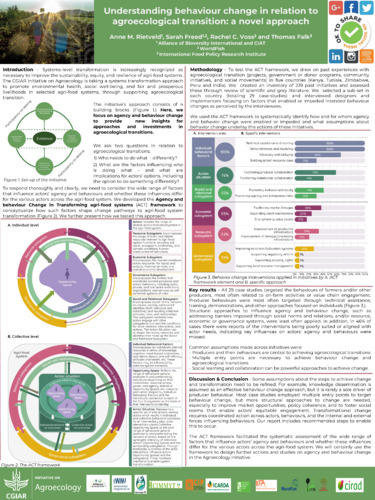Understanding behaviour change in relation to agroecological transition: A novel approach
A systems perspective is crucial to understanding behavior change processes in the agroecological transformation of food systems. Systems-level frameworks around behavior in agricultural systems are commonly used to assess the uptake of agricultural innovations, and in doing so, acknowledge the role of individual demographics and economic and governance institutions in shaping farmers’, fishers’, and pastoralists’ technology use decisions. While some behavior change frameworks further acknowledge the role of social networks in transmitting agricultural knowledge and innovations, they rarely account for wider social and relational structures that govern individual and collective behaviors, and are thus relatively gender-blind. Social and relational factors are especially relevant to understanding behavior change among women and marginalized groups whose opportunity spaces are often constrained by social norms and unequal power relations. Building on the social-ecological systems framework for resource governance, we offer a conceptual framework for analyzing behavior change for agroecological transformation in several countries engaged in the CGIAR Agroecological Initiative. The framework integrates concepts related to social relations, behavioral norms, power, agency, and opportunity spaces with those from agricultural innovation systems and social and behavior change research. We thereby propose a systematic means of integrating gender relations and equity concerns into behavioral analysis in the context of food systems transformation.

